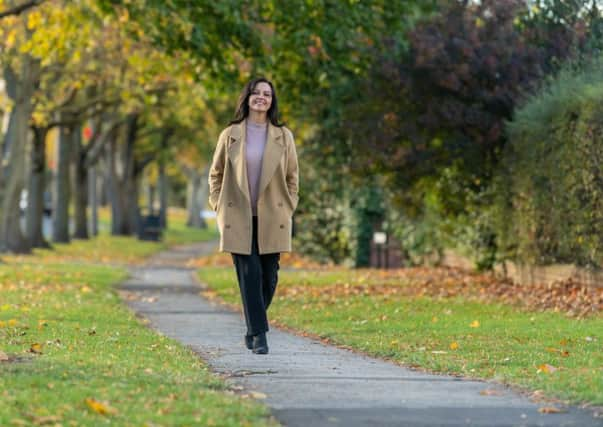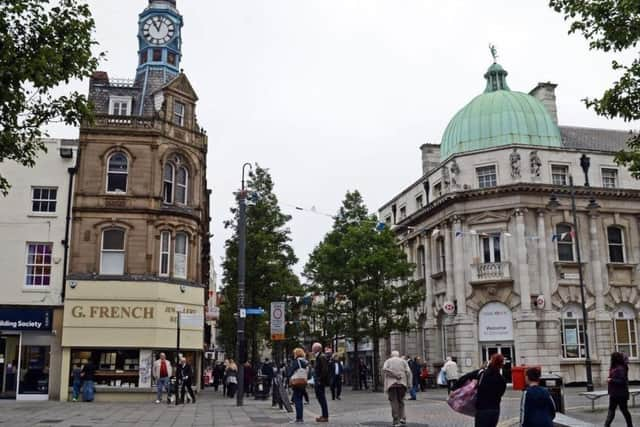Caroline Flint: How small changes to transport could make a big impact on our towns and villages


Undertaking my monthly surgeries across seven wards involves a 62-mile round trip. Reliance on cars is essential for many in those outlying communities, as public transport has failed them.
Effective transport is central to revitalising our post-industrial towns and giving new life to our smaller town communities. This is not new. When Tony Benn was MP for Bristol South East, he received a letter from a constituent that read: “Dear Tony, I see the Russians have put a space vehicle on the moon. Is there any chance of a better bus service in Bristol?”
Advertisement
Hide AdAdvertisement
Hide AdI want those voices to be heard. I have fought against post office and bank closures. I have been exasperated by the last-call attitude to providing mobile phone and broadband coverage to our homes and businesses in towns. I struggle to understand why new housing developments are built without broadband.


Last year, Joseph Rowntree Foundation research found that unaffordable and unreliable public transport cuts off the poorest families in the north of England from crucial job opportunities, making it harder for them to attend job interviews or to hold on to paid employment. Poor transport entrenches poverty.
As co-chair of the Northern Powerhouse All-Party Parliamentary Group, I recognise the importance of our cities to the regions and smaller communities of the North. We need to accelerate the delivery of Northern Powerhouse Rail. I do not want this debate to be about towns versus cities or the North versus London.
However, big cities are magnets for investment in transport, technology, culture and jobs on a level that few UK towns could ever aspire to achieve. My constituents want to be able to travel to our cities for both work and pleasure. We want bright young professionals for whom city living is the pull to be able to travel easily and at an affordable price to work in our local schools and health services.
Advertisement
Hide AdAdvertisement
Hide AdAll is not lost – small changes can make a big difference. My own experience as the MP for Don Valley speaks to this. Under the last Labour government, by 2002 Doncaster town centre had a new road bridge over the River Don. By 2005, two old, dirty bus stations were united in one airport-style clean and safe bus interchange.
In 2002, a road bridge replaced a level crossing, connecting my communities of Denaby and Conisbrough to the economic developments in the Dearne valley. Doncaster’s 100-year aviation history was brought to an end when our last airbase, RAF Finningley, was closed in 1995. It was destined at that point to become my area’s third prison. Backed by a people-led campaign, I lobbied the newly-elected Labour government to cancel the prison and secure a commercial airport. My 1997 election address pledged to secure a link road from the M18 to Rossington village. Today, Doncaster Sheffield Airport, which opened in 2005, supports more than 1,000 jobs and the planes fly to more than 50 destinations.
Not every town can have an airport to help to lever in transport investment, but every town can have its own small or large success story.
First, I want the Government to launch a national conversation about transport in towns. I do not want it to be dominated by the professionals, big businesses, the committee people and the usual suspects who respond to Government consultations. Instead, let us find new ways to hear from people in our towns and villages – people like the lady who wrote to Tony Benn all those years ago – about what bugs them and what makes them infuriated when they hear about the mounting billions spent on HS2 and other big Government projects that over-spend and under-deliver.
Advertisement
Hide AdAdvertisement
Hide AdSecondly, we need a bus consultation review so that when bus operators and planners consult on new routes and timetables, the obvious destinations, such as shops, markets, schools and health centres, are taken into account before changes are made.
Thirdly, we need to establish a Rebuilding Britain fund that supports smaller, but just as important infrastructure projects, for our towns and villages. Too often, they miss out on central funding because the match funding required is undeliverable locally. The fund should not require match funding. Alternatively, the Government should seek national or regional sponsors to support our towns, alongside Government resources, through the Rebuilding Britain fund.
In doing so, we say to our towns that their best days are not behind them, that decline is not inevitable and that their communities do matter.
Caroline Flint is the Labour MP for the Don Valley. She spoke in a Parliamentary debate on transport for towns – this is an edited version.